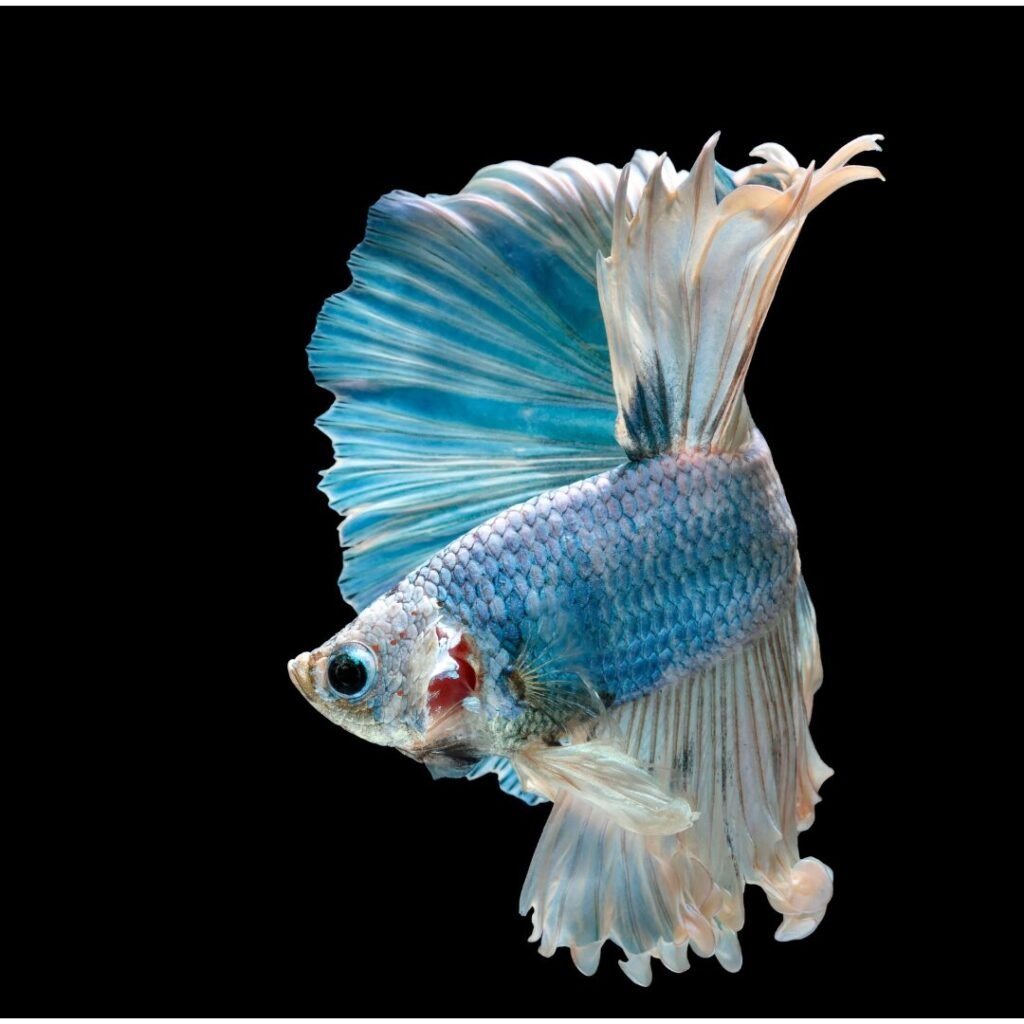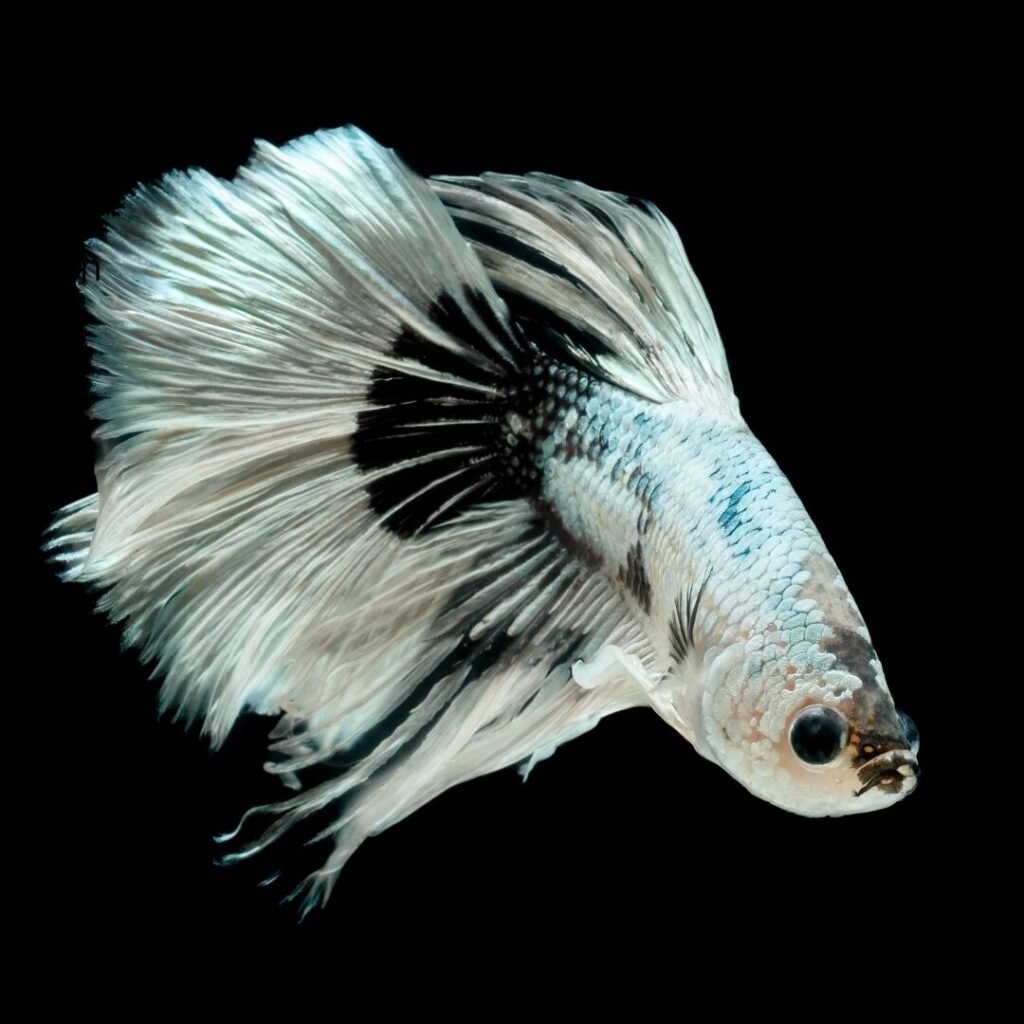Introduction
Betta Fish, also known as Siamese Fighting Fish, is a wonderful choice of pet, and if you have decided to keep a Betta fish as a pet, then that’s an excellent choice. Whether you have kept a Betta or are considering keeping a Betta fish as a pet, you must wonder, “Do Betta Fish Need A Filter To Survive?”
Well, if we come to the straight-on, Does a Betta Fish Need a Filter to Survive? Then the answer is “No”. You don’t need to set a filter for a Betta fish to survive. But when it comes to improving a Betta fish’s health and life span, installing a filter is an excellent decision.
Let’s dive into this article, where we will explore the care for Betta fish, their habitats, the importance of filters for betta fish health, the types of filters available, and much more.
Do Betta Fish Actually Need a Filter?
Betta fish are popular pets known for their vibrant colors and beautiful flower fins. While they are quite low-maintenance and easy to take care of, there is always a debate about whether they need a filter.
The necessity of a filter for Betta fish is a common topic among fish keepers. Betta fish can survive without a filter, but using a filter will improve their overall health and life span. Other than filters, various other factors affect their overall health.
Filters help maintain water quality by removing waste, toxins, and debris, which is crucial for fish’s well-being.
Betta fish are hardy creatures that can survive in various water conditions. While having a filter in their tank is not mandatory, it greatly benefits their health and longevity. Filters help to maintain water quality by removing waste and toxins, aerating the water for oxygenation, and providing a healthy environment for your Betta fish to thrive.

Purpose of Filters in a Fish Tank
Filters are used in fish tanks to remove particulates from the water. They also remove physical and soluble chemical waste products and maintain good water quality. Filters also provide oxygenation and aeration, prevent ammonia build-up, and promote a clean and clear environment.
Furthermore, tank filters are necessary to support life as fish tanks are relatively small and contain closed volumes of water compared to the natural environment of most fish. These filters help maintain a clean and stable environment, which is vital for the health of the fish.
How are Betta Fish Different From Other Fish?
Bettas are tropical fish. Have you ever wondered why no other tropical fish is as versatile as a Betta fish? It’s because Betta fish possess certain unique abilities that help them for prolonged survival.
Labyrinth Organ:
Betta fish have a special respiratory organ called the Labyrinth which is a unique organ that allows them to breathe atmospheric air.
Such organs are quite handy for surviving in places with low oxygen levels, such as shallow puddles and stagnant ponds.
Territoriality:
Betta fish, especially males, are aggressive and highly territorial. They can also be aggressive towards other males with similar appearances. They often show off their colorful fins and engage in combat to claim and protect their territory.
It is a behavior they have been showing from competing for mates in the wild. Due to the activities of betta fish, keeping multiple males together in the same tank is not recommended because they might fight.
Parental Care:
The male Betta fish show unique parental care by building bubble nests at the water’s surface. After the female Betta fish lays eggs, the male builds nests for the eggs and protects them until they hatch into baby fish.
Such parental involvement is uncommon among many fish species, but it ensures the survival of their offspring.
Diet:
Betta fish are carnivorous and primarily feed on insects and larvae, small shrimps in the wild. This differs them from other fish, which are likely herbivorous or have omnivorous feeding habits, such as plants and algae, to fulfill their daily nutrition.
Betta fish in captivity require a high-protein diet, which includes betta pellets and frozen or live foods like small shrimp and bloodworms.
Adaptability:
Bettas fish are known for being adaptive to different environmental conditions very easily, which makes them popular among pets for the house.
They can survive in various water temperatures, although warm water is best suited for them as they are tropical fish. It’s important to keep their tank clean and comfortable, as poor water quality might affect their health.
Fin Variations:
With their range of vibrant colors and flowery fin shapes, Betta fish are among the most attractive fish. Selective breeding processes have resulted in numerous variations of betta fish, which makes them attractive pets.
Their tail variations include the crown tail, Halfmoon, plakat, delta, retail, etc., which are quite popular as pets. These variations are unique to Betta fish and contribute to their popularity among fish enthusiasts.
Jumping Ability:
Betta fish are competent jumpers and can leap out of the water. This ability helps them escape from predators and danger or move between water sources in the wild.
Because of such ability, it is important to cover the betta fish tank in captivity so that the betta fish do not jump out of the tank.
Intelligence and Trainability:
Betta fish are intelligent enough to be trained to perform simple tricks such as passing through hoops, following commands, etc. They recognize their owners and their feeding time and show a variety of behavioral activities.
This may sound cool, but on the other hand, because of such intelligence with irrelevant feeding timings, poor water, and environmental conditions, the Betta fish are stressed and anxious, which declines their health condition.
How to Care For a Betta Fish Without a Filter?
If you don’t have a filter for your Betta fish tank and are wondering if Betta fish will survive without one, don’t worry; just follow some simple habits that will help to keep the beta fish happy and healthy and prolong its lifespan without a filter.
Tank Requirements
- Tank Size: A 5-gallon tank is ideal for Betta fish to live and move, although a minimum of 2.5-gallon tank is recommended if that is not possible.
- Tank Setup: Make the tank a more natural habitat for the Betta fish by adding substrates like gravel or sand and including decorations like live plants, caves, and hiding spots.
Water Quality
- Regular water changes: Change the water every week or 10 days, keeping it neat and clean. Betta fish water changing guide is crucial.
- Avoid Contamination: Do not contaminate the water with unknown chemicals and substances that may harm the Betta fish. Always use chlorine-free water for your betta fish tank.
- Water Temperature: Betta fish are tropical fish, so maintaining water temperature between 76-82°F (24°C – 28°C) is ideal for them. You may also use a heater to maintain the water temperature during cooler seasons.
Monitor Water Parameters
- Test kit: Using a reliable fish tank water test kit is recommended for regular checks of ammonia, nitrite, nitrate, pH, and other parameters.
- Adjustment: Maintain the pH between 6.8 and 7.5; a nitrate below 20 ppm is ideal for betta fish.
Feeding Your Betta Fish
- Food Quality: Betta fish need highly nutritious food rich in protein, like betta pellets, shrimps, bloodworms,
- Avoid Overfeeding: It is recommended that betta fish be fed 2-4 pellets twice a day. Give them less food to reduce waste. Too much feeding can make the water quality worse. Overfeeding the Betta fish may lead to their health hazard, so avoid it.
Betta Fish Habitats Without Filters
In the tropical wild, Betta fish live in shallow, stagnant water such as rice paddies, ponds, and streams with low water flow. Such an environment doesn’t have much filtration, but they are rich in plants and beneficial bacteria, which helps maintain the water quality.
In captivity, mimicking such a natural habitat with live plants and regular water changes in the betta fish tank will create a friendly environment and help the betta fish survive without a filter.
Benefits of Filters in Betta Fish Tanks
Filters have numerous benefits in Betta fish tanks.
- Filters improve the water quality of the Betta fish tank.
- It removes particulates from the water.
- Removes excess food, feces, and bad bacteria from the water.
- Filters help to oxygenate the water in the Betta fish tank.
- Due to its automatic filtration process, the physical maintenance of the Betta fish tank is less.
- Better water quality due to filters leads to healthier and more active Betta fish.
- Filters help maintain the Betta fish tank’s ammonia nitrate and pH balance.
Betta Fish Habitats With Filtered Tanks
In filtered tanks, betta fish can thrive in a more stable and cleaner environment. The Betta fish tank filter helps maintain water parameters, remove waste efficiently, and promote overall water quality.
With the right filter and proper care, Betta fish can live longer, exhibit brighter colors, and display more active behavior. Filters also provide circulation that benefits live plants and helps distribute nutrients.
What Happens to The Betta Fish Tank Without Filtration?
So, if you have decided not to have a filter and are wondering what will happen to the betta fish tank without a filter, here is the explanation.
Without a filter, the betta fish tank needs frequent cleaning and maintenance. Negligence towards cleaning will lead to rapid deterioration of the Betta fish tank. Negligence will also increase the ammonia nitrate and pH level of the water, causing staining of the betta fish tank.
Poor water quality will negatively affect the health of Betta fish and cause a decline in their lifespan. Betta fish in bad water conditions get stress and anxiety, and their hunger and appetite for food also decrease. Without a filter, monitoring water conditions closely and providing alternative filtration methods in the Betta fish tank is crucial.
Sometimes Betta fish tends to swim in circles which is also known as Erratic Swimming. Know more>>>>
Types of Filtration Recommended For Betta Fish
Using the right filtration system is crucial when selecting a filter for your Betta fish tank to maintain a healthy and stable environment for the Betta fish. Here is a filtration recommendation for your beloved Betta fish tank.
Mechanical Filters
Mechanical filters remove physical debris from the water, such as uneaten food and waste. They also remove solid particles from water by circulating water through filter membranes that strain out solid particles.
Mechanical filters use media like sponges, pads, or floss to trap particles, keeping the water clear and preventing waste buildup.
Biological Filters
Biological filtration is performed by colonies of beneficial bacteria that grow on surfaces within the filter media. These bacteria break down the toxic ammonia nitrate into smaller particles to reduce its toxicity.
This conversion process is crucial for preventing ammonia and nitrite poisoning, which can be deadly to the Betta fish, and for preventing staining over the fish tank. These beneficial bacteria thrive on oxygen-rich water and a surface to which they can attach, such as rocks, sand, or the media in the filter.
Chemical Filters
Certain chemicals, such as Active carbon or charcoal, Zeolite, and Phosphate removers, are used to remove dissolved substances and toxins from the water. To avoid water contamination, use the chemicals in a limited quantity.
Sponge Filters
Sponge filters provide both mechanical and biological filtration. They work by absorbing small and large particles and filtering the water through their membrane.
These filters are gentle, easy to maintain, and ideal for small Betta fish or Fry due to minimal water movement.
Internal Filters
These are motor-based filters which work by sucking the water inside the machine and passing it through various filters. These filters are compact, ideal for small tanks, and can include mechanical, biological, and chemical filtration processes.
Hang-on-Back (HOB) Filters
The name Hang on Back says these filters are on the back of a fish tank. These filters provide excellent water circulation and filtration, effectively removing debris and maintaining water clarity.
It comes in various sizes and is suitable for all tank types. The filter is placed outside, thus saving space and providing mechanical, biological, and chemical filtration.
Under Gravel Filters
The under-gravel filter utilizes a plastic filter plate placed under the substrate. An air pump attached to tubes on the filter plate pulls the aquarium water down through the substrate, taking the particulate matter with it.
It provides biological filtration by using a medium for beneficial bacteria and helps oxygenate the substrate.
Other Filters
Other filters are available, such as box, canister, diatomic, fluidized bed, power, and trickle filters. Each filter has its own advantages and considerations; therefore, it is advised to research and choose the one that best suits your tank size and Betta fish needs.
A simple suggestion is to consider the specific filter suitable for your betta fish’s strength. The filter flow must also be adjustable so that your betta fish can swim freely without any struggle.

Conclusion
In conclusion, While Betta fish can survive without a filter, providing them with a filtered tank significantly enhances their health and quality of life. Filters are essential in maintaining water quality and promoting a healthy environment for the Betta fish, making them a valuable addition to any Betta fish habitat.
Whether you choose to have a filter or not in your Betta fish tank, proper care, regular maintenance, and monitoring of water conditions are essential for the health and longevity of your beloved Betta fish.
For those who prefer to use a filter for their betta fish tank, it is recommended that they do thorough research on every filter option and its functions and choose the one that is ideal for their tank size and Betta fish preferences. Remember: “A Happy Betta Is A Healthy Betta!”
Frequently Asked Questions
Q: Can I keep a Betta fish in a bowl without a filter?
A: Yes, it is possible to keep Betta fish in a bowl without a filter, although it is not ideal for their health and well-being. Consider alternative filtration methods or upgrade to a tank with proper filtration for optimal care.
Q: How often should I change the water in a Betta fish tank without a filter?
A: Without a filter, you should change the water very frequently, at least once a week, to remove waste and maintain a good oxygen level. Monitor water parameters closely to ensure a healthy environment for your Betta fish.
Q: Can Betta fish live without a filter?
A: Yes, but it requires more frequent water changes and careful water quality monitoring.
Q: How often should I change the water in an unfiltered Betta tank?
A: Ideally, 25-50% of the water should be changed every 2-3 days.
Q: What size tank is best for a Betta fish?
A: A tank of at least 2.5 gallons is recommended, but larger tanks of 5 gallons or above are better for stability.
Q: How long can a Betta fish live without a filter?
A: Betta fish are hardy creatures that can survive in a fish tank without a filter as long as the fish tank is cleaned and maintained frequently.
Q: How Strong Should a Betta Fish Filter Be?
A: Betta fish fins are quite delicate, so it’s ideal to consider a low-press flowing filter that is gentle on the fish.
You May Also Checkout:

